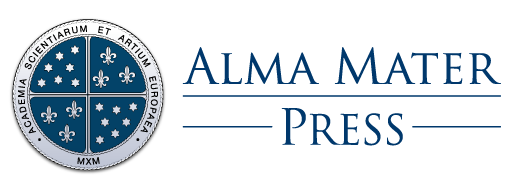Intelligentsia in Russia, Intellectuals in Slovenia
DOI:
https://doi.org/10.33700/1580-7118.16.1.47-68(2014)Keywords:
intelligentsia, Russia, émigré intellectuals, SloveniaAbstract
During their complex, initially spontaneous and later predominantly dictated modernisation, the western countries accepted intellectuals into their state apparatuses. As a result, the latter never formed an independent, oppositional group of citizens. They subscribed to various ideological trends while working as intellectuals in the public sphere. Russia, on the other hand, underwent a different process. Under the special circumstances accompanying the development of an autocratically ruled Russian Empire, which was drawn into modernisation processes by orders ‘from above’ (Peter I, Catherine II, Alexander II), the educated stratum organised itself as a particular group of citizens – the intelligentsia. These were crucially defined by their critical attitude to the government. In 1917, following the downfall of the imperial rule, which was incapable of a quick and radical self-reform, this stratum found itself in the ruler’s capacity, but their inability for constructive work soon deprived them of power. They were superseded by professional revolutionaries, who were their rivals in opposing the Empire. Most of the intelligentsia emigrated abroad, where they initially tried to work as they had in Russia, but the new currents in their host countries transformed their status into that of intellectuals. In Soviet Russia, on the other hand, the newly trained intelligentsia gained a different role: they were to ensure a professional construction of socialism. This was likewise the case in the Kingdom of Yugoslavia, including Slovenia, where the concept of the intelligentsia first appeared in its Soviet variety, after the Communist revolution.
Downloads
References
AŠKERC, A. (1993): Zbrano delo. Sedma knjiga, Ljubljana, Državna založba Slovenije.
BIRSTEIN, V. J. (2013): Smersh. Stalin’s Secret Weapon, London, Biteback Publishing.
COPLESTON, F. (1992): Filozofija u Rusiji, Beograd, BIGZ.
DEUTSCHER, I. (1977): Stalin. Politična biografija, Zagreb, Globus.
FIGES, O. (2013): Tragedija ljudstva. Ruska revolucija 1891–1924, Ljubljana, Modrijan.
HARTMAN, B. (1992): “Dvoje nenavadnih mariborskih knjižničarjev”, Časopis za zgodovino in narodopisje 64=29, (2), 229–240.
KARDELJ, E. (1980): Spomini. Boj za priznanje in neodvisnost nove Jugoslavije 1944–1957, Ljubljana, Beograd, Državna založba Slovenije, Radnička štampa.
KERENSKY, A. F. (1966): The Kerensky Memoirs: Russia and History’s Turning Point, London, Cassell.
KIZWALTER, T. (2009): “Dzieje inteligencji polskiej do roku 1918, ed. Jerzy Jedlicki”, Acta Poloniae Historica 100, 241–244.
LABEDZ, L. (1961): “The Structure of the Soviet Intelligentsia”, v: Pipes, R., ur., The Russian Intelligentsia, Columbia University Press, New York, 63–79.
LEHOVICH, D. V. (1974): White against Red. The Life of General Anton Denikin, New York, Norton.
LUKACS, J. (2010): The Legacy of the Second World War, New Haven, London, Yale University Press.
PEARSON, R. (1977): The Russian Moderates and the Crisis of Tsarism 1914–1917, London, Basingstoke, Macmillan.
PINCUS, S. (2009): 1688. The First Modern Revolution, New Haven, London. Yale University Press.
PIPES, R. (1959): Karamzin’s Memoir on Ancient and Modern Russia. A Translation and Analysis, Cambridge (Mass.), Harvard University Press.
PIPES, R. (1961): “The Historical Evolution of the Russian Intelligentsia”, v: Pipes, R., ur., The Russian Intelligentsia, Columbia University Press, New York, 47–62.
PIPES, R. (1980): Struve. Liberal on the Right, 1905–1944, Cambridge (Mass.), London, Harvard University Press.
PIPES, R. (2005): Russian Conservatism and Its Critics. A Study in Political Culture, New Haven, London, Yale University Press.
STEPHAN, J. J. (1978): The Russian Fascists. Tragedy and Farce in Exile, 1925–1945, New York, Haper & Row.
TREPPER, L. (1977): Velika igra, Ljubljana, Borec.
VON LAUE, Th. H. (1963): Sergei Witte and the Industrialisation of Russia, New York, London Columbia University Press.
WRIGLEY, Ch. (2006): A. J. P. Taylor. Radical Historian of Europe, London, New York, I. B. Tauris.
ŽMEGAČ, V. (2006): Od Bacha do Bauchausa. Povijest njemačke kulture, Zagreb, Matica hrvatska.

